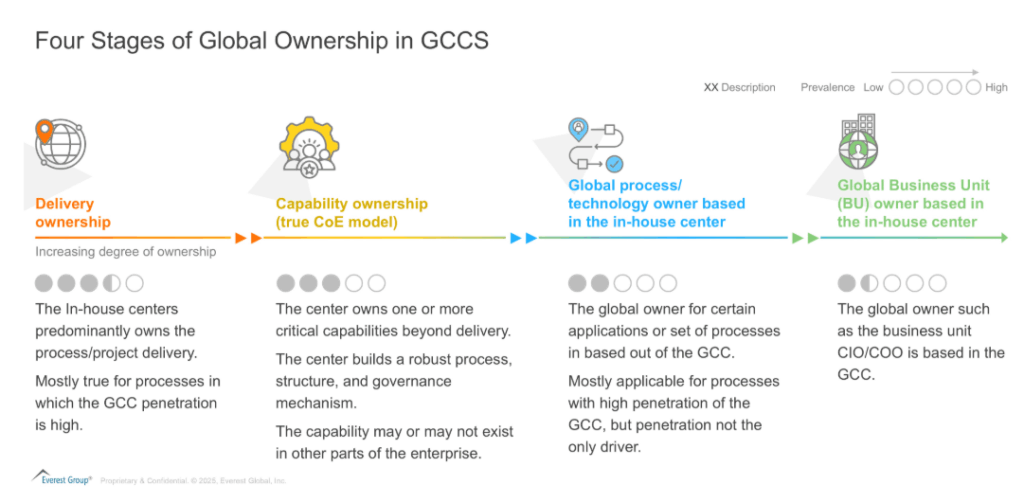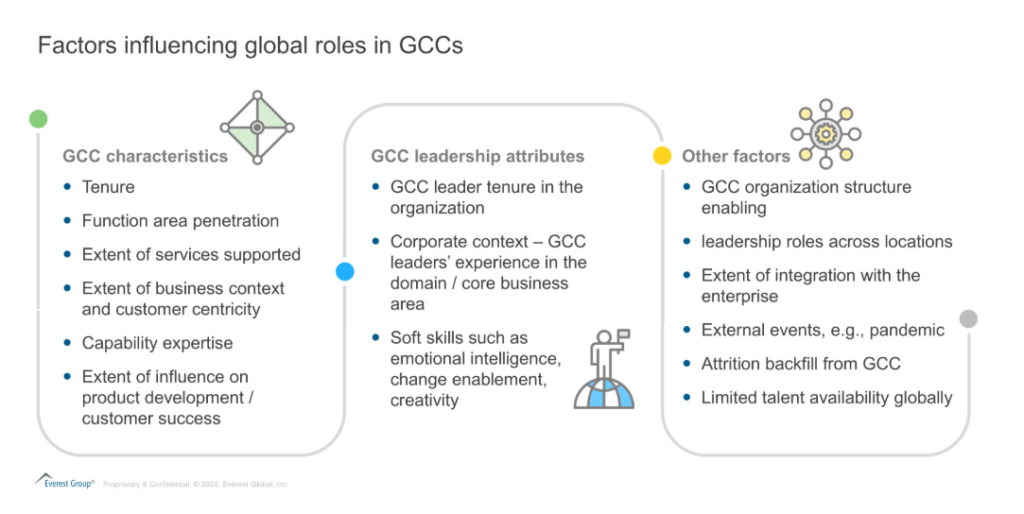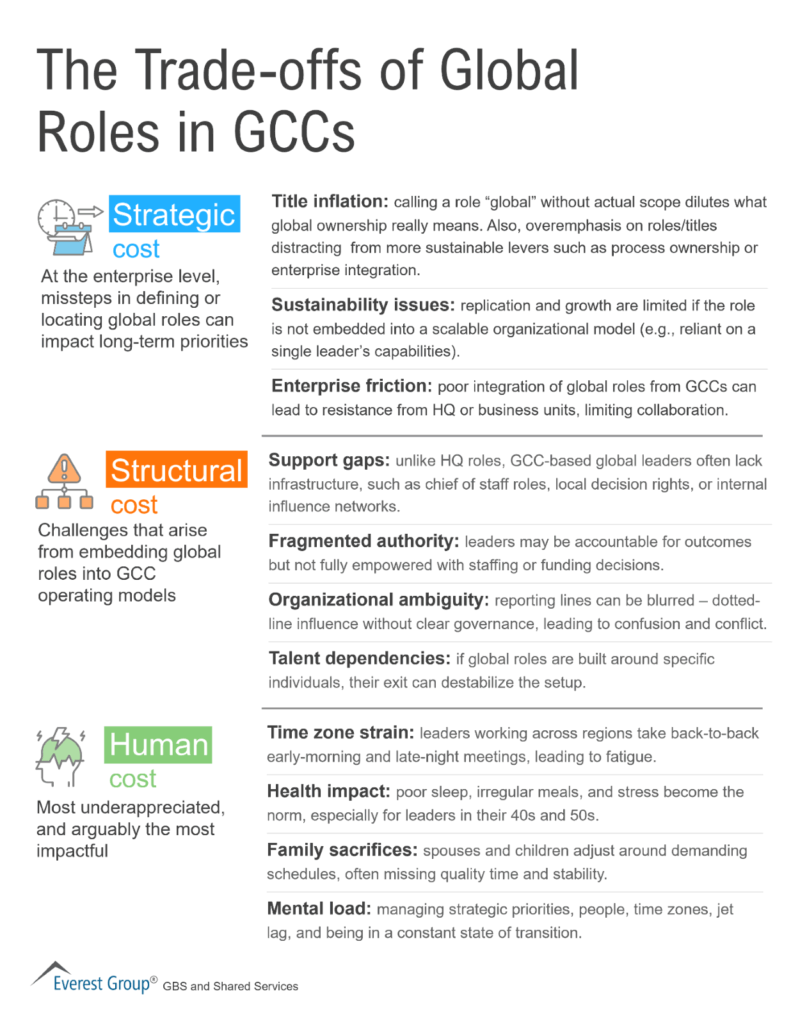Blog
Decoding the Cost of Global Roles in GCCs: Hype vs. Reality

In recent months, there’s been growing noise around the idea that housing global roles is the new pinnacle for Global Capability Centers (GCCs).
The narrative is so strong that one might believe global roles are the North Star for all GCC evolution journeys. But is that really the case? Are all GCCs designed or even intended to house global roles? And more importantly, are we labeling the right kind of work as “global”?
It’s time to cut through the hype and get to the heart of what global roles truly mean, and what it actually takes to own them.
Reach out to discuss this topic in depth.
Let’s face it, even in enterprises, true global roles are limited
Here’s the truth: in most global enterprises, a large portion of roles are inherently transactional or operational, by design. These roles are essential for running the business, but they’re not necessarily strategic.
Truly global roles, the kind that come with end-to-end ownership, influence, and impact, are relatively few and far between. And that’s within the enterprise itself. So, when I hear people assume that every GCC should eventually house global roles, I must pause. Is that realistic? And even if it were, is it necessary? The goal here isn’t to dismiss the ambition, in fact, I get where it’s coming from. But it’s important we don’t lose sight of what actually adds value.
First, let’s understand global ownership, it’s a spectrum
Not all roles labeled “global” are created equal. Using the framework below, we can see that global ownership in GCCs evolves across four distinct stages:

So, when we talk about “global roles,” we need to be clear. True global roles go beyond delivery. They imply ownership of staffing, funding, transformation agendas, and a business outcome mindset.
Can GCCs truly house global leadership roles?
Housing global roles in GCC are often dependent on factors such as GCC scale, maturity, scope of work done, and integration levels with businesses.

The trade-offs that come with global roles in GCCs
Let’s get real; global roles come with a cost. A strategic cost, structural cost and human cost!

The Risk: Role or individual?
Here’s the hard truth: many so-called global roles are tethered to individuals, not the GCC. When that person moves, internally or externally, the role often migrates back to the enterprise Headquarters (HQ). That’s not sustainable.
Here’s the rant (and the real ask)
So yes, I know I’ve been ranting about the obsession with global roles and how fragile that ambition can be. But the rant has a purpose; it’s to nudge GCCs to focus on a more achievable, scalable level of value: Think about it. With maturing tech capabilities, deeper domain knowledge, and a growing business context, GCCs are uniquely positioned to help enterprises reimagine processes. Not just run them but redesign them for efficiency and experience.
And that’s the real opportunity, reducing friction, boosting process effectiveness, and ultimately helping the enterprise deliver better experiences to end customers. If some global roles emerge along that journey, great. But chasing titles for the sake of optics? That’s a distraction.
Titles don’t transform; people (with the right conditions) do!
Global roles are great when they’re real, when they’re needed, and when the GCC is truly ready for them. But they’re not the only, or even the best, indicator of success.
What truly drives impact is a combination of capable leaders, empowered teams, and a supportive operating model, one that enables deeper enterprise integration, end-to-end accountability, and measurable business outcomes.
Let’s focus on building that. The titles can follow.
If you enjoyed this blog, check out our A Wake-Up Call For Emerging GCCs: Why Early Overconcentration In India Can Derail Long-Term Value | Blog – Everest Group, which delves deeper into another topic regarding GBS and GCCs.
To learn more about mastering the GCC / GBS model and about our GBS and Shared Services offerings, please contact Bharath M ([email protected]).